Wool Mill Feature: Ewethful Fiber Farm and Mill
by Kira Dulaney
One of the many pleasures of spinning is searching out different breeds of sheep and fiber blends to try. As a bonus, heading down that path means supporting smaller ranches raising heritage breeds and, if you choose not to start with raw fleece, sourcing fiber from small wool mills. I love visiting wool mills and learning what each one specializes in, then spreading the word far and wide to help connect the mills with both fiber producers and spinners. Recently I spent some time with owner Kim Biegler of Ewethful Fiber Farm and Mill in Halsey, Oregon, a rural community just an hour and a half south of Portland.
Ewethful is a mini mill using equipment that can turn out small batches, specializing in making roving from local sheep and alpaca. Incoming fiber is scoured, air-dried, sometimes dyed, picked, and carded, and occasionally blended. The picker, carder, and draw frame are all Belfast Mini Mill machinery manufactured in Canada. Kim operates and maintains all of the machinery as the sole employee.

Kim married into a farming family in the “grass seed capital of the world” in rural Oregon, where along with husband Mitch she also raises Shetland and BFL/East Friesian–cross sheep, alpaca, a Pygora goat, and myriad non-fiber-bearing animals. The mill itself has just one four-legged inhabitant, a calico cat named Wish who eagerly greets guests on the monthly open mill days.
Running a fiber mill is hard work, and I respect that Kim has narrowed the scope of Ewethful to what both she and her equipment are happiest doing. Since the mill’s start in 2016, she’s pared down to focus on creating loose roving perfect for woolen spinning, no longer taking custom orders or spinning yarn. Wool from Kim’s own flock is represented along with fiber from other Pacific Northwest ranches. She shops for fleece at fiber festivals, then contacts ranchers for larger purchases, and sometimes ranchers hear of the mill through word of mouth.
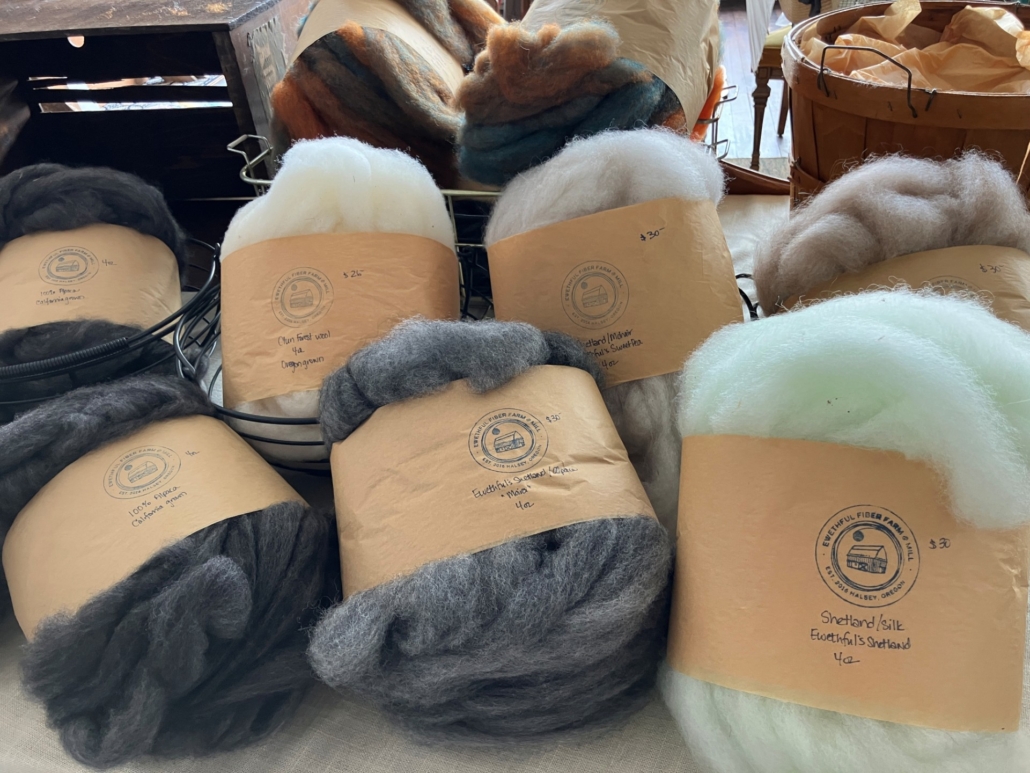
Kim’s carder works well with mid-grade alpaca and heritage breeds of wool, both of which are plentiful in the area. Although it can handle fine wools if they’re high-quality coated fleece, Kim prefers to stick with 20+ micron fiber. Some fibers get dyed before carding, others are blended on the draw frame afterward, and many are left in natural colors. On my visit, I saw Romney in the drying cabinet, turquoise-dyed Clun Forest on the carder, and containers of freshly carded roving including Romney, Jacob, and an intriguing blend of Romney, silk, and camel. In the shop there was also roving from Shetland, alpaca, Shetland/mohair, Shetland/silk, and Shetland/alpaca. I spun up some of Kim’s own Shetland wool and it was a dreamy fluffy roving that was a breeze to draft. Availability varies quite a bit as different fleeces come into the mill and the finished roving gets snapped up by Patreon supporters, then newsletter subscribers, and finally folks browsing the website or visiting the mill shop.
Once a month, Kim hosts a Mill Shop Day and many people come from the surrounding area, some hanging out all day long and even setting up an informal potluck of snacks and drinks. Visitors get to tour the mill, browse the store, and sit crafting and chatting around a large table. Even though the shop is open just once a month, it’s stocked with fiber tools including niddy noddies, knitting needles, hand-carved crochet hooks, and dye. Yarns from small U.S. mills satisfy those who aren’t spinners yet, and the offerings are rounded out with soaps, ceramics, project bags, and candles from local makers. Most of these are also available online along with the mill’s roving. There are spinning wheels and looms throughout the shop, some for sale and others awaiting refurbishing.
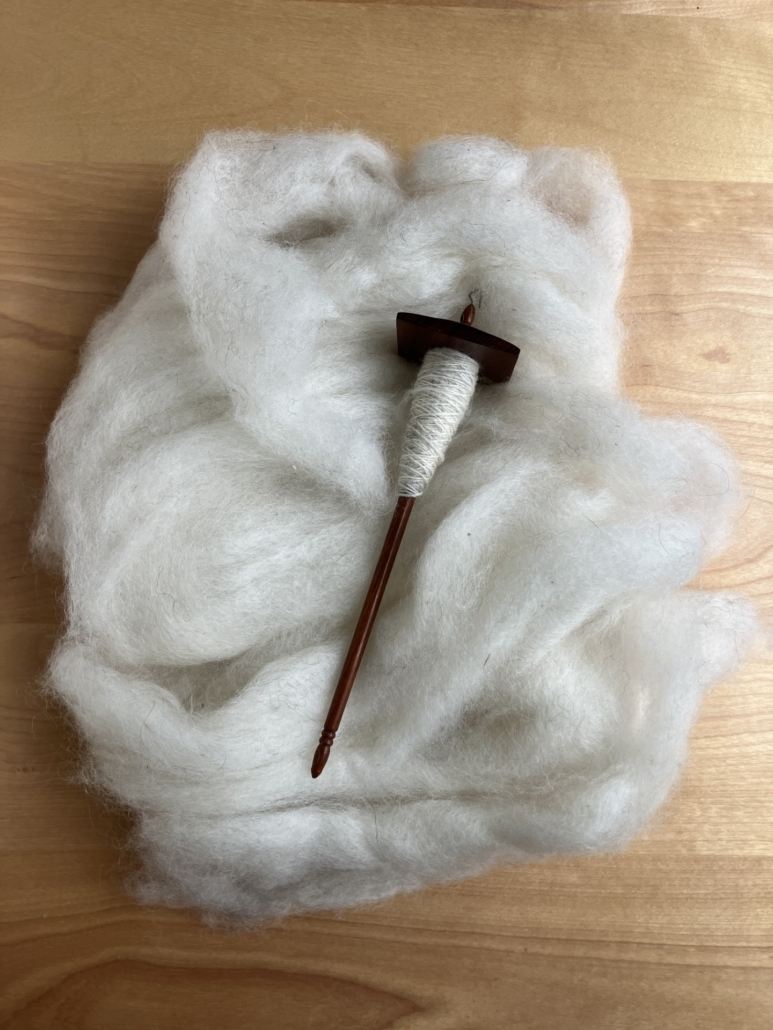
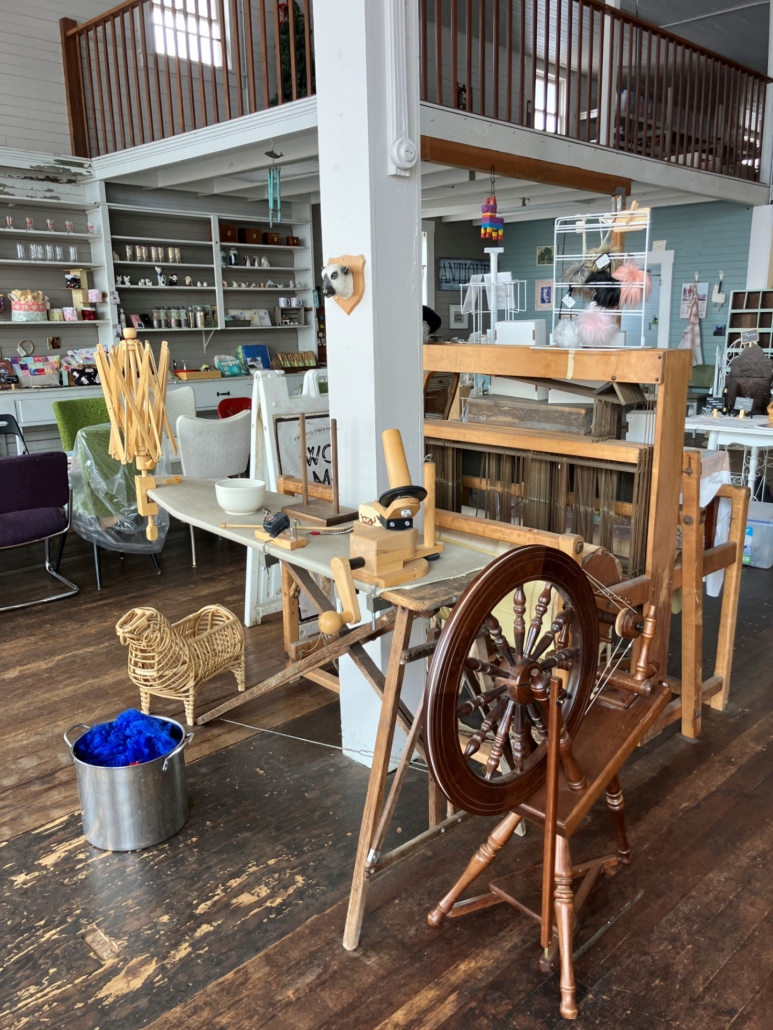
A great way to see behind the scenes at the mill and hear about the current fibers in process is to watch Kim’s vlog All the Wool on YouTube. A recent video followed Shetland wool from a cold soak into the washing machine and later the drying cabinet, while earlier batches went through the picker and carder. The video includes a cameo by the two Kunekune pigs on the farm, and a reminder that Kim’s community is inclusive of fiber lovers of all identities and backgrounds. The Ewethful website also has helpful blog articles, downloadable videos, and online courses for spinners to watch at their own pace.
At a time when wool mill closure announcements keep rolling in and tariffs are affecting imported products, it’s important to support our U.S. wool mills of all sizes. That support extends to the ranches that produce the fiber, rare and heritage breeds of fiber-bearing animals, and all the hard-working people involved along the way. I’ll keep sharing my visits with the PLY community, and I encourage you to seek out your local wool mills or chat with those you see at fiber festivals.
Check out Ewethful on their website: https://www.ewethfulfiberfarm.com/
A lifelong crafter, Kira Dulaney has been teaching fiber arts classes since 2002 and travels across the country to share skills in knitting, crochet, embroidery, spinning, weaving, mending, and more. Kira designs knitting and crochet patterns, teaches, and hosts crafty event in the San Francisco Bay Area.
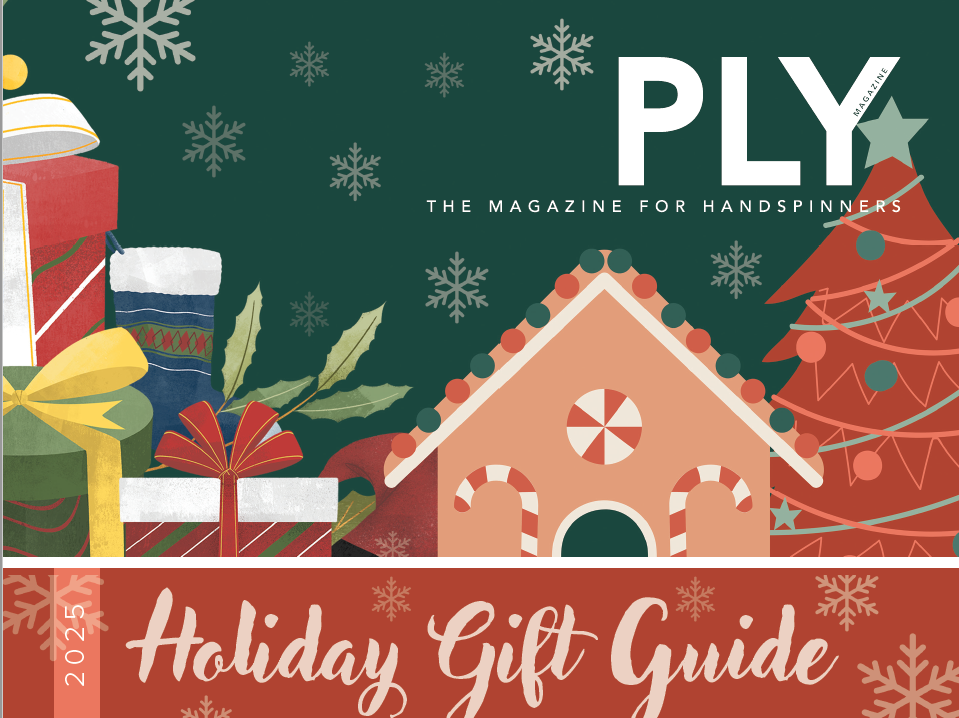
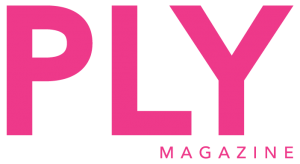


Leave a Reply
Want to join the discussion?Feel free to contribute!